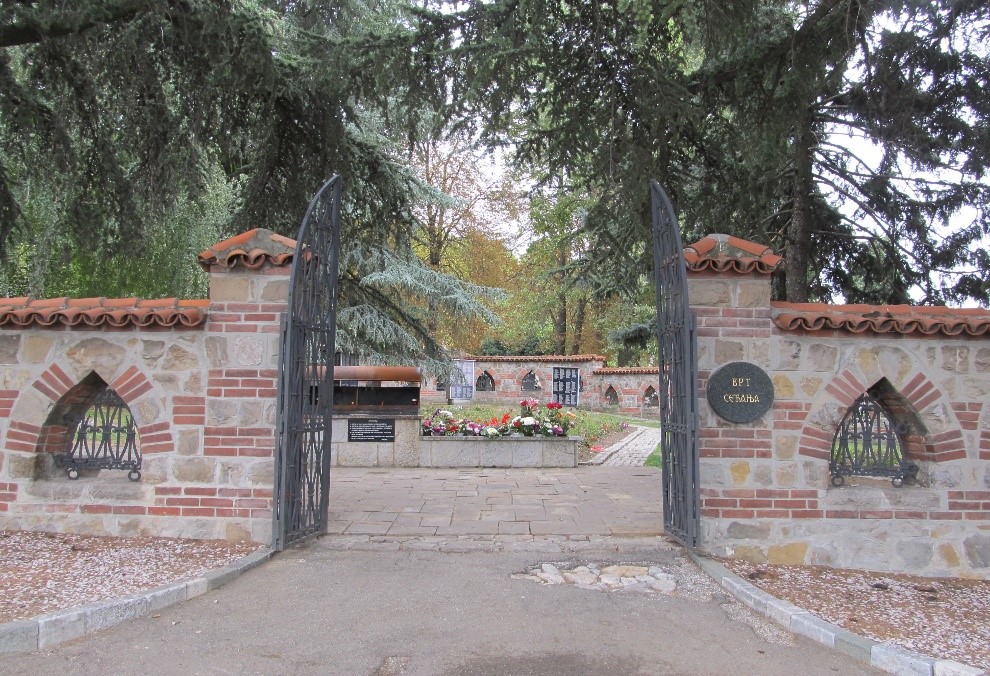Latest news
Contributed message by ICF member

Slobodan Stojanović, MA, Vice President of OGANJ
Probably, the year 2020 will be historiographically recorded and remembered for the appearance and action of the virus Covid 19, which changed a lot and imposed various new preoccupations.
One, among the current planetary preoccupations, seemingly less significant, is the influence of Covid 19 on cremations as a form of burial. It is understandable that death, and thus funerals, ie cremation, as delicate and not so widely attractive topics, were suppressed, but Covid 19 imposed them again in a peculiar way.
Recently published comparative data from the Republic Bureau of Statistics on the increase in mortality by 3.5 percent in 2020 compared to 2019 (January-October), indicate additional information, analysis, views and activities, primarily related to the pavidemic Covid 19 and cremation. A special testimony is the number of obituaries.
It is no coincidence that the original cremationist ideas and activities came from doctors for primarily hygienic and health reasons and motivation to prevent the spread of possible infections by burning the dead and for fire and high temperatures to be a kind of isolation and shield.
Thus, in Serbia, the crematist activities of the Oganj Society, founded in 1904, were led by Jovan Jovanović Zmaj, Dr. Vojislav Kujundžić, Dr. Milan Batut, Dr. Aleksandar Kostić and gathered people who accepted the crematist idea in the broadest philosophical form or in the narrowest pragmatist.

Crematorium Belgrade
There are currently two crematoria in Serbia and they have been operating since 1964 and 2004. Data on the number of deceased and cremated for the period January-October 2019 and 2020 in Belgrade and Novi Sad, which are marked as hotbeds of the Crown, are full of special attention.
The increase in the number of deaths in both cities was at the level of Serbia (with a lack of data for KIM) and also increased by 3.5 percent, ie from 84168 to 86798 in Belgrade and from 2675 to 2768 buried in Novi Sad.
In contrast to the steady increase in the number of deceased (3.5 percent), the increase in the number of cremated is significantly higher (7.1 percent)cfor Belgrade and 9.7 percent for N.Sad. Data on the number of cremated in Belgrade show an increase from 2421 to 2592, or by 171 more funerals performed in this way, and in N.Sad from 482 to 529 cremated, or 47 more.
Cumulative increase in cremation in these two cities, from January to October 2020 compared to the same period 2019; is 7.5 percent, or the number of cremated has increased from 2,903 to 3,121 deaths. This increase of 7.5 percent can be accepted as an increase in cremation at the level of Serbia.
Public Utility Company Funeral Services from Belgrade and Lisje from Novi Sad very quickly and efficiently adapted to the new situation caused by Covid 19. They bore the greatest burden in July and April when the number of deceased and cremated was the highest. for their cremation activities developed by themselves using current best practice and reference recommendations from international and domestic institutions. Therefore, the employees deserve all the praise (and decorations), similar to the medical staff, although they were not in the center of attention of the general public.
However, data on the share of the cremated in the total number of deceased in both 2019 (3.4 percent) and 2020 (3.6 percent) indicate that Serbia is lagging behind many countries where cremation is much more prevalent.
Comparative data from secondary sources of the European Union of Crematists (EUC) and the International Federation of Crematists (IFC) unequivocally show the growing importance of cremation and the share of cremation that reaches 90 percent of the number of deceased.
Particularly noteworthy is the case of France, in which the number of crematoria increased by 5 in 2020, so that there are now 198, and the share of cremated from 38.1 percent to 39.9 percent, and in which, among other things, each city is considered over 50,000 there should be a crematorium and the local self-government must take care of that.
Thanks to that, not only in France, but also especially in Italy and Great Britain, the pandemic shock is, as much as possible, relatively easier to resist with less stressful situations at all levels.
The Oganj Association, which marked its 115th anniversary with an international conference last year, advocates for a kind of encouragement of cremation and new broader approaches than spontaneous, sporadic and lonely enthusiastic ones. Along with them, systematic and organized efforts are urgent. Additional engagement of the public sector and support of the appropriate administration on the principles of greater respect for modern principles of solidarity and dignity are a challenge that lies ahead.
The situation and tendencies regarding Covid 19 suggest this more strongly than ever, especially the culmination of cremations in November, which exceeds 10 percent.
The truth about cremation, even about Covid, as well as about many other historiographical ones, points to Schopenhauer's paraphrased thought "Every new truth has three stages. The first is when he laughs, the second when he encounters opposition and the third when he has always known about it."
Slobodan Stojanović, MA,
Vice President of OGANJ
SERBIA
Here you can read the article written bij Slobodan Stojanović about why there should be more crematoria in Serbia.
Europe ARTE pays attention to first crematorium in Greece.
Click here to watch the video.
Ritsonas makes significant donation to SOS Children’s Villages
We are proud to share this announcement made by the representative of our member from Greece, Mr Antonis Alakiotis, President of the Greek Cremation Society.
The Greek Cremation Society has decided to donate 10% of their shares in the crematorium in order to help children in need that do not have a suitable, caring family environment. Please click here to read the full article as published in ‘The National Herald’.
Mr Alakiotis informed us that the crematorium is performing very well and many citizens have expressed their support, congratulations and appreciation.
Ritsonas Crematorium, situated at approximately 70 kilometres distance from Athens, has opened in September 2019. Although in Greece cremation was legalised in 2006, it did not provide cremation facilities so far.
Many parties and especially the Greek Cremation Society based in Athens have fought for this fundamental right for many years. The realisation of the crematorium was made possible by commendable longstanding dedication, determination and powerful efforts of those involved.
This milestone and the gratifying current developments give credit to the basic values of the ICF as well as honour our history in a special way.
 (5).jpg)
 (4).jpg)
 (8).jpg)
 (1).jpg)